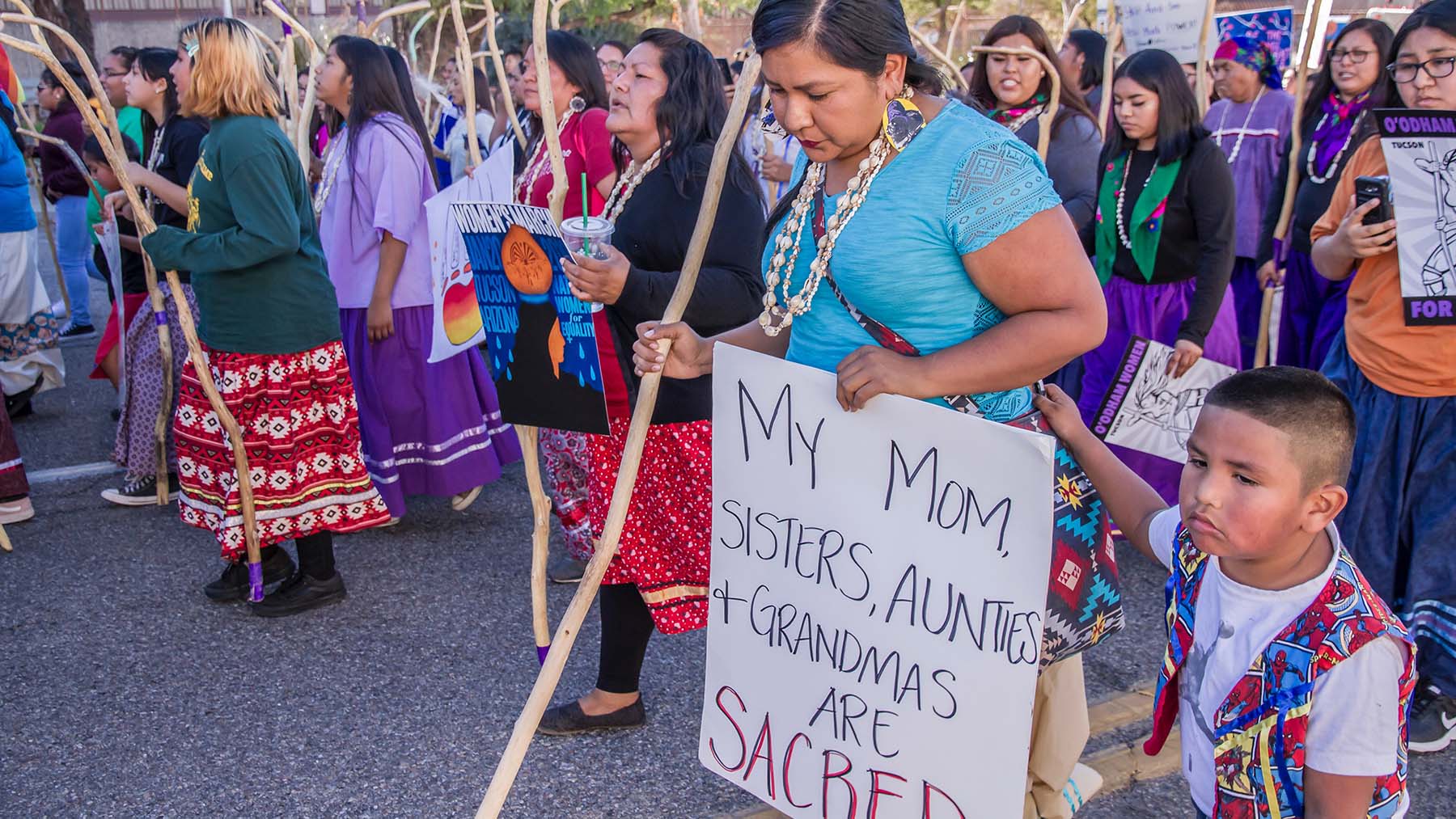Focused on Native American Women, Course Offers Insight—not Stereotypes
Native American women held significant positions of power within their social and political spheres before white Christian settlers targeted Native people’s egalitarian societies for eradication. And that’s one reason, Associate Professor Molly McGlennen contends, that it is useful to study women’s history through a Native American lens.
This semester, students enrolled in McGlennen’s course, “Women’s Studies 262 – Native American Women,” are examining the impact of colonization on Native American nations through the brutal and intentional subjugation of Native women over the past 400 years. “The political influence of women in Native American communities is something my students know virtually nothing about,” she said. “The question this course asks is: ‘Why don’t we know this?’”
In one class, the students discussed the role of women in the Haudenosaunee (Iroquois) Nations—Seneca, Mohawk, Cayuga, Tuscarora, Onondaga and Oneida—in what is now New York State. “The worldview of the Haudenosaunee vastly differed from that of the settlers,” McGlennen told the class. “Women were—and continue to be—the decision-makers, unlike European settlers whose social structures were patriarchal and hierarchical. Settlers sought to annihilate that component of Native governance and life outright. Thus, violence against Native women was—and is—an essential part of the colonial enterprise.”
McGlennen’s course also examines the shortcomings of western feminisms in understanding the roles of Native women and Native people’s sovereignty in general. She said she has been advocating for the addition of Native American voices and texts in other Women’s Studies courses since she joined the faculty in 2008. “It continues to evolve,” she said, noting the importance of Native scholarship shaping the syllabuses of Women’s Studies courses with Indigenous feminist theory and thinkers.
McGlennen said she has also updated Women’s Studies 262 to include more information about Native American women’s leadership role in relationship to issues of land acknowledgment and stewardship. “Part of my job in this course is to tell my students to let go of the stereotypes they’ve been taught about Native Americans and to start anew by taking Indigenous peoples’ lead,” she said.
Two students who are enrolled in the course say it has been eye-opening. “This course has already been important in altering how I view relationships, land, and womanhood,” said Charlotte Rhoads ’22, an environmental studies major from Portland, ME. “It has challenged the way I think and how academia thinks, which I could not have done on my own. This course is really about stories, but more importantly about listening to stories and sitting with voices that oftentimes academia pushes to the side. I am deeply grateful for the guidance of Professor McGlennen and for the generosity of both her and the authors that we are reading for sharing their stories and wisdoms.”
Joy Yi Lu Freund ’22, a media studies major from Brooklyn, said she had taken a number of classes at Vassar that have influenced her political consciousness and sense of self as a Chinese international adoptee raised in the United States. “In their best iterations, both of these areas employ anti-colonial and anti-imperial analyses, which owe heavily to the contributions and wisdom of Native and Indigenous folks, women in particular,” Freund said. “However, within these areas, perspectives and material produced by Native and Indigenous people are often marginal and not afforded primary focus. It felt deeply important to share in this learning generously offered by Professor McGlennen, as larger critiques of colonialism and empire cannot be thought separately from the original displacement and genocides waged against Native peoples that continue today.”
McGlennen said she would continue to advocate for a deeper examination of the intersection of women’s studies and Native American studies. “In the past few years, Indigenous feminists have advanced the field,” she said. “Broader feminist coalitions have much to learn from Native women’s intellectual traditions. There are still a lot of gaps to fill and work to be done.”
